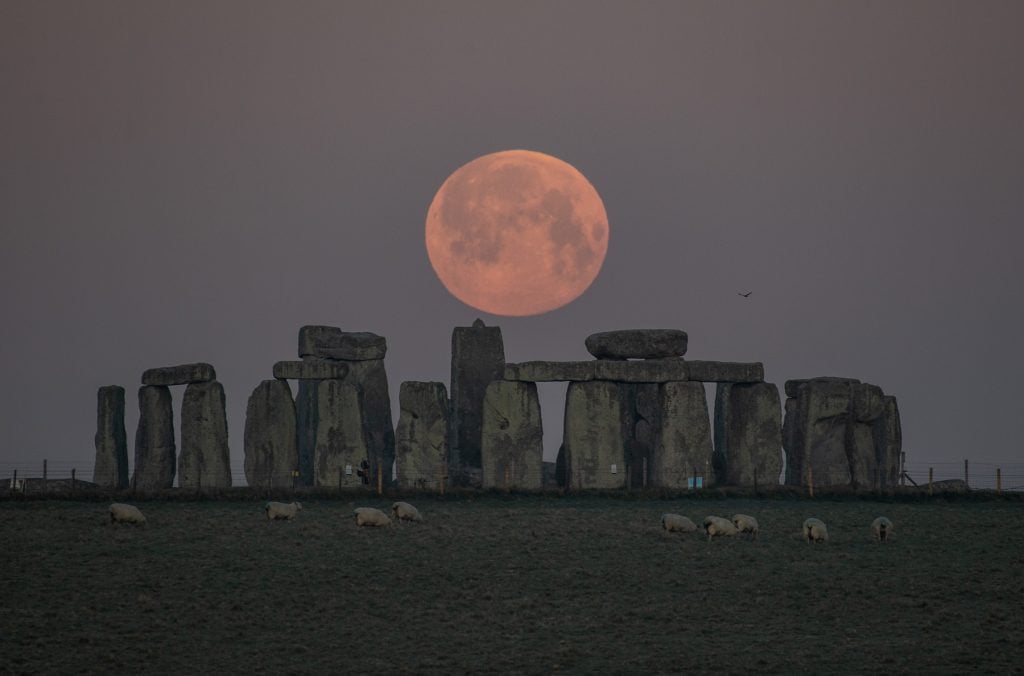 The full moon sets behind Stonehenge on April 27, 2021 in Amesbury, England. Photo by Finnbarr Webster/Getty Images.
The full moon sets behind Stonehenge on April 27, 2021 in Amesbury, England. Photo by Finnbarr Webster/Getty Images.A long lost piece of England’s Stonehenge monument is helping experts understand the mysterious prehistoric structure.
Analysis of a core sample taken from one of the site’s massive slabs suggests that the stone’s geochemical composition may have made it uniquely well-equipped to stand the test of time.
Made from 99.7 percent quartz crystals, the stones are practically indestructible, according to a new study published in the journal Plos One.
“Now we’ve got a good idea why this stuff’s still standing there,” study co-author David Nash, a professor of physical geography at the University of Brighton, told Business Insider. “The stone is incredibly durable—it’s really resistant to erosion and weathering.”
The study was made possible thanks to a former diamond cutter, Robert Phillips, who died last year.
Made from 99.7 percent quartz crystals, the stones are practically indestructible, according to a new study published in the journal Plos One.
“Now we’ve got a good idea why this stuff’s still standing there,” study co-author David Nash, a professor of physical geography at the University of Brighton, told Business Insider. “The stone is incredibly durable—it’s really resistant to erosion and weathering.”
The study was made possible thanks to a former diamond cutter, Robert Phillips, who died last year.
He did repair work at Stonehenge in 1958, drilling into Stone 58 to help re-erect a fallen trilithon of three stones. READ MORE